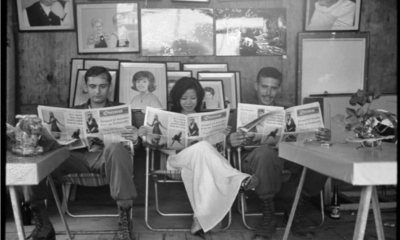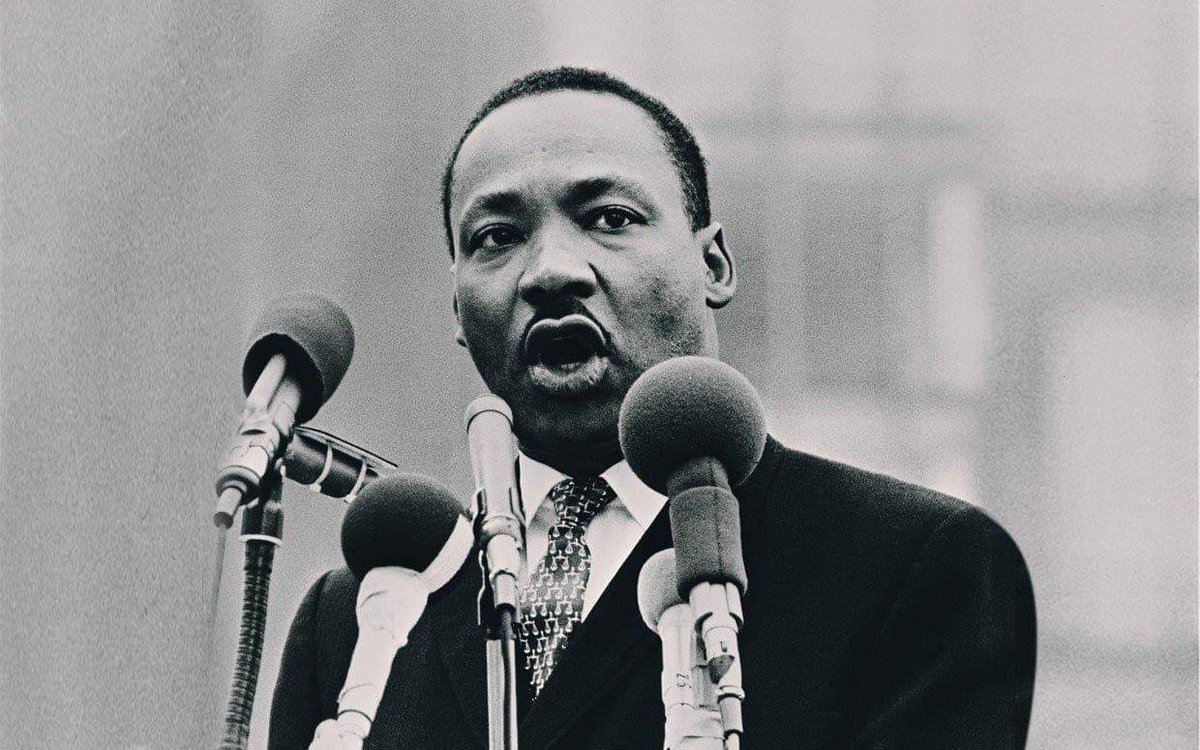Vinh Phu Pham
Dr. King will always be remembered as a progressive civil rights leader who championed the fight for civil rights and inspired countless people around the world. His life, however, is often presented as a series of inspirational quotes(not to mention all the terrible misquotations) rather than as the complex struggle it was—a fight that included advocacy for both social justice and peace, along side a cocktail of turmoils in his personal life. As we commemorate Dr. King’s legacy on this day, let us go through some important reminders of why he was a symbol for social progress.
Let it be known that Martin Luther King Jr. was a radical—radical in the sense that he was willing to take action even when it was neither safe nor convenient, especially in the context of a nation that went so long in trying to reconcile its radicalized past and social divide. He believed that the status quo of inequality and injustice needed to be challenged and made the efforts to see it through. In his famous “Letter from Birmingham City Jail,” he wrote, “We know through painful experience that freedom is never voluntarily given by the oppressor; it must be demanded by the oppressed.” He also said, “Now is the time to raise our voices for equality.” King’s call led to many peaceful protests across America—some without any violence at all (including one in Montgomery during which they sang hymns). This kind of activism against racism was radical because it didn’t just advocate for African American rights; it advocated for human rights and social justice as well.
Let’s also not forget that King, like many progressive leaders of the day, was deeply concerned about the Vietnam war, which he called an “enemy of the poor.” King was worried that this war was distracting Americans from working on social justice issues at home and drawing men—particularly those in low-income communities—away from their families. He also opposed the disproportionate number of poor people who were being drafted into military service and dying in Vietnam. While some progress has been made in this regard, similar class issues relating to military recruitment are still in effect.
King saw America’s engagement in Southeast Asia as a betrayal of its own history of liberating slaves and promoting equality for all people. In 1967, he told a group at Riverside Church: “I knew that I could never again raise my voice against the violence of war without having first spoken clearly to the greatest purveyor of violence in the world today — my own government.” Indeed, this stance was not unique to King, as anti-imperialist rhetoric was center to the argument for many activist leaders fighting for a global vision of liberation.
Of course, Dr. King would never see the end of the war. While he was planning a massive rally in Washington DC on April 27, 1967 to protest what many people saw as an unjust war, King was gunned down outside his hotel room. The day after his death, 250 thousand people attended the rally led by Dr. Ralph Abernathy and Coretta Scott King. The 1968 Poor People’s Campaign became the largest civil rights demonstration in history and it set plans for future gatherings that continue today.
Beyond being a civil rights leader, Dr. King was also a social justice advocate who sought to improve the lives of others in many areas and including: education, health care, housing and economic security. We might think of the Fair Housing Act of 1968 as a prime example of the type of material progress that was made. As such, we remember him not only as the leader who thought solely in terms of highlighting the color line, but also as an activist who fought adamantly for tangible change. In other words, for King, social equality was not just rhetorical, but required that the material conditions of those in need be radically altered as well.
Today, we can honor Dr. King by continuing his fight against injustice wherever it occurs – whether that be on issues like immigration reform or equal pay for workers. The United States, like any other nation, took many years and numerous wars(both internal and external) to become what it is. Yet, as we inch towards progress, there are still those who are forgotten or left behind in our long history of inequality. In this way, it is not only enough to speak of equality, our laws and action have to continually reflect and exert the values we think we have as a society. This is especially important as our country attempts to move past its history of slavery and segregation into an era where all citizens enjoy equal opportunity in every aspect of life.
The legacy of Martin Luther King Jr. is one that should be remembered and celebrated. He was radical in that he was a man who fought for equality for all people, even when it was unpopular to do so. It’s important to remember that Martin Luther King did not just have a dream, he actively fought for social policy change and worked on behalf of marginalized people throughout his lifetime. We are better off to remember him not only as a man with a dream, but as a leader who brought together vision and action for a better society.

 Politics & Economy4 years ago
Politics & Economy4 years ago
 Society & Culture5 years ago
Society & Culture5 years ago
 ARCHIVES5 years ago
ARCHIVES5 years ago
 Politics & Economy4 years ago
Politics & Economy4 years ago
 Politics & Economy1 year ago
Politics & Economy1 year ago
 Politics & Economy5 years ago
Politics & Economy5 years ago
 After 19751 year ago
After 19751 year ago
 Politics & Economy4 years ago
Politics & Economy4 years ago







